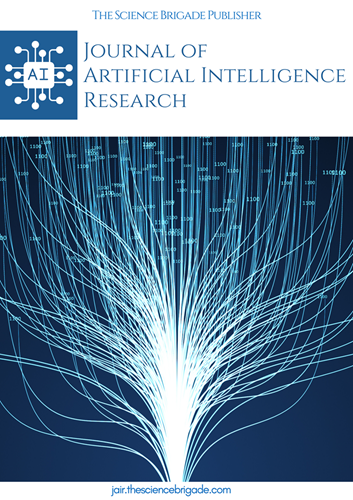AI-Driven Enhancements for Secure API Gateways in Cross-Platform Data Integration Architectures
Keywords:
AI-driven security, API gateways, cross-platform data integrationAbstract
The proliferation of cross-platform data integration architectures has necessitated the enhancement of security mechanisms for Application Programming Interfaces (APIs). As businesses increasingly rely on APIs to facilitate communication between disparate systems, ensuring the security of these APIs becomes critical. Artificial Intelligence (AI) has emerged as a transformative technology capable of improving the security of API gateways by identifying vulnerabilities, detecting malicious activities, and automating the enforcement of security policies. This paper explores AI-driven solutions for enhancing the security of API gateways in cross-platform data integration architectures. The paper discusses how AI techniques, such as machine learning (ML) and anomaly detection, can be integrated into API gateway frameworks to provide proactive security measures. Furthermore, it examines the role of AI in managing access control, monitoring API traffic, and preventing common security threats such as API abuse, DDoS attacks, and data breaches. The challenges of implementing AI-driven security measures in API gateways are also addressed, including the need for high-quality data, model training, and integration with existing security infrastructures. Finally, the paper highlights real-world applications and case studies, demonstrating the effectiveness of AI-driven API security solutions in practice.
Downloads
Downloads
Published
Issue
Section
License

This work is licensed under a Creative Commons Attribution-NonCommercial-ShareAlike 4.0 International License.
License Terms
Ownership and Licensing:
Authors of this research paper submitted to the journal owned and operated by The Science Brigade Group retain the copyright of their work while granting the journal certain rights. Authors maintain ownership of the copyright and have granted the journal a right of first publication. Simultaneously, authors agreed to license their research papers under the Creative Commons Attribution-NonCommercial-ShareAlike 4.0 International (CC BY-NC-SA 4.0) License.
License Permissions:
Under the CC BY-NC-SA 4.0 License, others are permitted to share and adapt the work, as long as proper attribution is given to the authors and acknowledgement is made of the initial publication in the Journal. This license allows for the broad dissemination and utilization of research papers.
Additional Distribution Arrangements:
Authors are free to enter into separate contractual arrangements for the non-exclusive distribution of the journal's published version of the work. This may include posting the work to institutional repositories, publishing it in journals or books, or other forms of dissemination. In such cases, authors are requested to acknowledge the initial publication of the work in this Journal.
Online Posting:
Authors are encouraged to share their work online, including in institutional repositories, disciplinary repositories, or on their personal websites. This permission applies both prior to and during the submission process to the Journal. Online sharing enhances the visibility and accessibility of the research papers.
Responsibility and Liability:
Authors are responsible for ensuring that their research papers do not infringe upon the copyright, privacy, or other rights of any third party. The Science Brigade Publishers disclaim any liability or responsibility for any copyright infringement or violation of third-party rights in the research papers.




